Body Systems Connected

This module explores the amazing human body and the many systems that allow it to move, breath, and grow. Students will explore the functions and organs of the human body systems to create a model explaining the anatomy of one they find most interesting.
After this module you will be able to:
- Describe the function of human body systems.
- Identify some organs found in the human body systems.
- Design a human body system.
CONTENT TEKS
- 7.12.(B) Identify the main functions of the systems of the human organism, including the circulatory, respiratory, skeletal, muscular, digestive, excretory, reproductive, integumentary, nervous, and endocrine systems.
- B.10. (A) Describe the interactions that occur among systems that perform the functions of regulation, nutrient absorption, reproduction, and defense from injury or illness in animals.
PROCESS TEKS
- 7.3(B) Use models to represent aspects of the natural world such as human body systems and plant and animal cells.
NEXT GENERATION SCIENCE STANDARDS
- MS-LS1-3 Use argument supported by evidence for how the body is a system of interacting subsystems composed of groups of cells.
- HS-LS1-2 Develop and use a model to illustrate the hierarchical organization of interacting systems that provide specific functions within multicellular organisms.
Materials
- Playdough
- Clay
- Scissors
- Glue
- Tape
- String/Rope
- Cardboard
- Foam material
- Paper
- Poster paper
- Writing utensils: pencil, pen, markers, colored pencils, etc.
- Cooking items: yogurt, bread crumbs, strawberries, rice, beans, etc.
- Recycling materials: straws, water bottles, plastic bags, etc.
- Virtual app: Minecraft, YouTube, sketching app, etc.
Safety
- Use sharp objects carefully and with adult supervision.
- Wash your hands after working with playdough or clay.
- If you are using a technology device, make sure your device screen is about 25 inches away from your face.
- To prevent eye strain from screen time, every 20 minutes, take a rest and look at an object at least 20 feet away for at least 20 seconds.
- Clean up your workspace by putting all materials away and leaving the area as you found it.
Activity
Watch the activity video below.
Steps
- Use the website below to explore all the different human body systems.
Explore the Human Body Systems - Now that you have explored all human body systems, choose a human body system.
- Use materials around your house or a digital software to create a model of the system you chose. Label the structures (parts) and function (job) of the body system.
- Make a video or write a short paragraph to explain the function(s) of your system. Make sure you identify at least three organs found in that system, and lastly, include an everyday activity that uses this system.
Dig Deeper
Read This
Recommended: Middle and High School
Endocrine System
Did you know endocrine (say: EN-doh-krin) glands are a little bossy? They tell your
cells what to do! But that's actually a good thing. Without your endocrine glands, and the hormones they release, your cells wouldn't know when to do important things.
Excretory System
Did you know that we have an entire body system dedicated to just getting rid of liquid
waste and filtering the blood? Learn more about the excretory system.
Recommended: Middle School
Integumentary System
Did you know that your epidermis is showing? What are we talking about? The integumentary system protects your body from pathogens, sunburns, and dehydration. Also, an organ in this
system is the largest organ in the body.
Circulatory System
Did you know your body has its own transportation system? Blood is responsible for
transporting nutrients and oxygen that your body needs. The circulatory system is made up of the blood, heart, and vessels like arteries and veins. The heart is
a really strong muscle that pumps blood all over the body!
Respiratory System
Did you know that there’s more to breathing than our nose? The respiratory system is made up of the lungs, trachea, diaphragm, and nose. This system helps us breathe,
talk, sing, and other cool activities.
Recommended: High School
Digestive System
Did you know the first step in the digestive process happens before we even taste food? Just by smelling that homemade apple pie or thinking
about how delicious that ripe tomato is going to be, you start salivating — and the
digestive process begins in preparation for that first bite.
Nervous System
Did you know that your brain is working hard when you're taking a math test? But, your brain is doing a lot more
than just remembering formulas. Those sweaty palms you get as the test starts; that’s
your brain at work. The relief you feel when you know an answer is right; that’s your
brain, too.
Try This
Did you know all our body systems are constantly working together to maintain a balanced order? Click on each system to see what it looks like in the body. Then, you can continue clicking to learn more specific details about each body system.
Watch This
Did you know our body systems didn’t start out with organs? They begin with the smallest unit of life and grow into the systems we rely on every day.
Did you know our body systems work together to keep us alive and running? Our bodies are so strong because of the amazing interactions between the systems. Watch this video to learn about how the organs in different body systems work together to help us do everyday activities like exercising, eating, and breathing!
Show What You Know
Meet Our Expert
What does a fly biologist do, and how are flies important to science? Richard Meisel, Ph.D., Associate Professor and STEM expert from University of Houston’s Department of Biology and Biochemistry, shares insight into this fascinating question. Watch our expert video to find out more. Be sure to look for the fly homes in Dr. Meisel’s lab.
Meet The Teachers
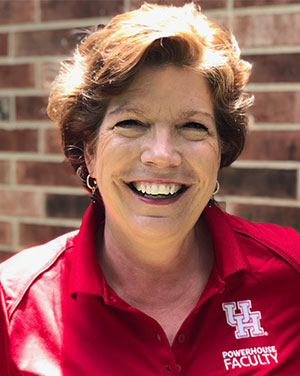
Ramona Mateer
Program Director, teachHOUSTON STEM Interactive
Master Teacher, teachHOUSTON, Department of Mathematics, University of Houston
Ramona Mateer, a University of Houston alumna, earned an M.Ed. in Science Curriculum
and Technology (University of Texas). She is a former junior high school science teacher
and instructional coach. In her free time, she cycles, reads, and enjoys Nintendo
Switch online gaming.
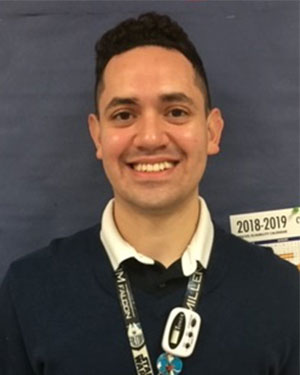
Carlos Perez
Biology Teacher, Cypress-Fairbanks ISD, Cypress Ridge High School
University of Houston, College of Natural Sciences and Mathematics, teachHOUSTON Alumnus, Biology Major
Mr. Perez is a biology teacher at Cypress Ridge High School. He graduated from the
teachHOUSTON Program at the University of Houston. He always strives to make science fun
and accessible to all students. In his free time, Mr. Perez enjoys learning fun facts
about science, and he likes to spend time in nature.
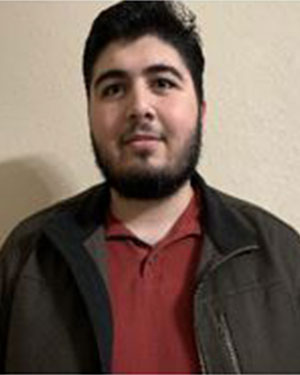
Sajjad Razzaq
Biology Major, teachHOUSTON Preservice Teacher, University of Houston, College of Natural Sciences and
Mathematics
Mr. Razzaq is a biology major who loves learning about health and science. He aspires
to be a health science educator or a doctor upon graduation. He loves to play video
games and likes to draw in his free time. He believes that learning should be fun
and is excited to be a part of the virtual summer camp with the teachHOUSTON Program again. .
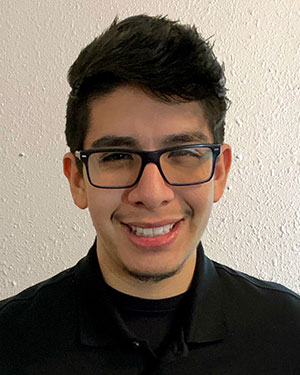
Brian Gonzales
Biology Major, teachHOUSTON Preservice Teacher, University of Houston, College of Natural Sciences and
Mathematics
teachHOUSTON STEM Interactive Video Editor
Mr. Gonzales is an undergraduate student at the University of Houston. He will be
student teaching in the fall and would like to teach either biology or anatomy and
physiology once he receives his teaching certification. In his free time, he enjoys
listening to artists like twenty one pilots or Billie Eilish, building Lego Star Wars
sets, and practicing photography at the park.
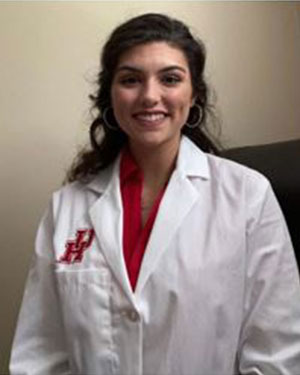
Kendall Bailey
Biology Major, teachHOUSTON Preservice Teacher, University of Houston, College of Natural Sciences and
Mathematics
Ms. Bailey is an undergraduate student at the University of Houston pursuing a degree
in biology. Currently, she is halfway through the teachHOUSTON program and is excited to be back at the university in person this fall to
continue her studies. In her free time, Ms. Bailey enjoys working out and catching
up on her sleep!

Caroline Nguyen
Biology Major, teachHOUSTON Preservice Teacher, University of Houston, College of Natural Sciences and
Mathematics
Ms. Nguyen is an undergraduate student at the University of Houston. She will take
Multiple Teaching Strategies in the fall and is excited to see all her teachHOUSTON friends again. Outside of school, she loves to skateboard, do embroidery,
and laugh at corny jokes!

Jane Pham
Biology Major teachHOUSTON Preservice Teacher, University of Houston, College of Natural Sciences and
Mathematics
Ms. Pham is an undergraduate student at the University of Houston. She will begin
her student teaching in the fall semester. In her free time, she likes to read novels/comic
books and watch anime and horror movies at midnight to reduce her stress.
- https://kidshealth.org/en/kids/bodyarticles.html
- https://kidshealth.org/en/kids/endocrine.html
- http://www.biology4kids.com/files/systems_excretory.html
- https://kids.kiddle.co/Integumentary_system
- https://www.ducksters.com/science/blood_and_the_heart.php
- https://www.ducksters.com/science/breathing.php
- https://www.ducksters.com/science/bones.php
- https://kidshealth.org/en/teens/digestive-system.html
- https://www.rchsd.org/health-articles/brain-and-nervous-system-2/
- https://www.ducksters.com/science/muscles.php
- https://serpmedia.org/scigen/l6.3b.html
- https://www.youtube.com/watch?v=8fG5Pxr9ZQ0&ab_channel=Elesapiens
- https://www.youtube.com/watch?v=9eu1bbOy5xw
- https://www.ck12.org/book/ck-12-life-science-for-middle-school/section/17.3/